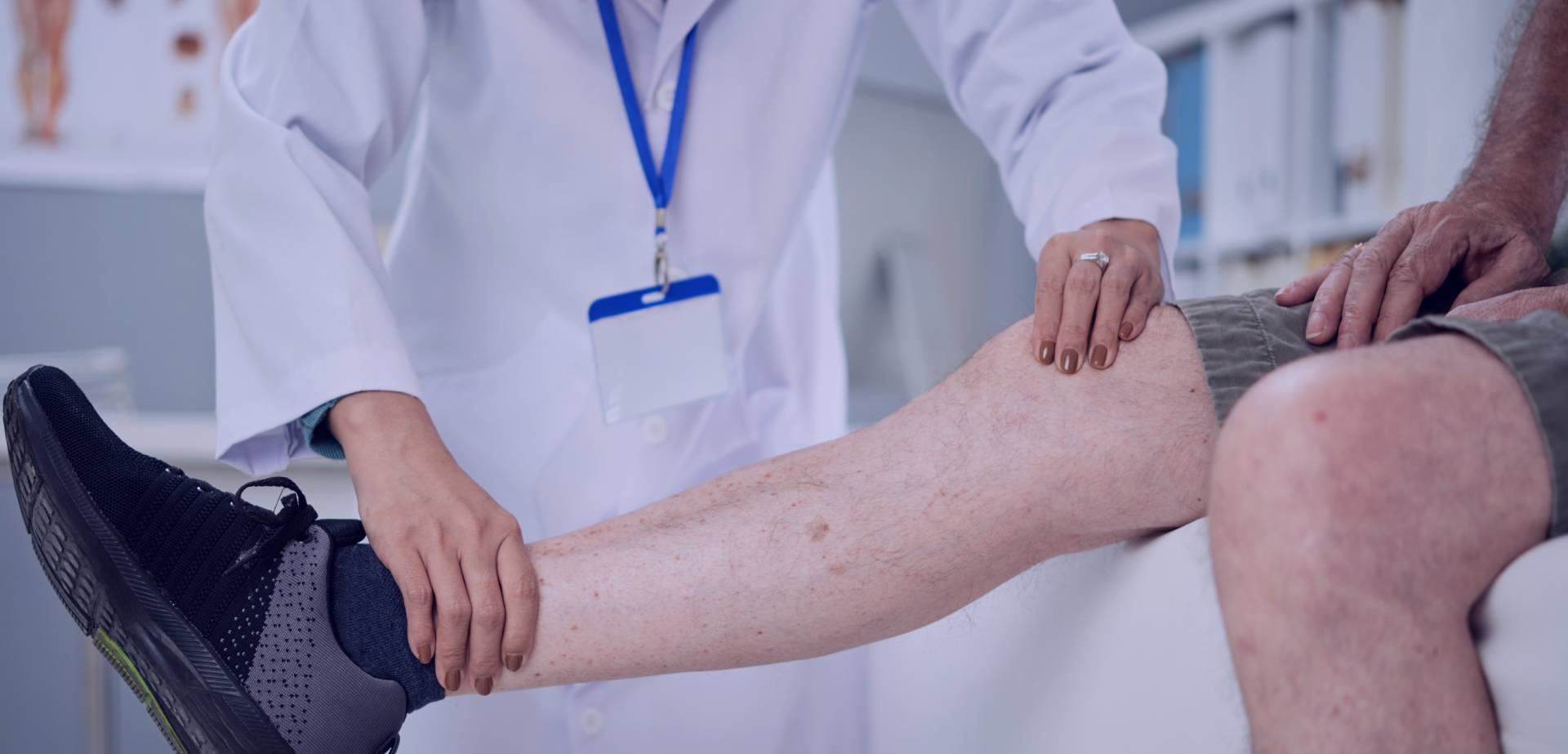
- 23-02-2023
Everything You Need to Know About Deep Vein Thrombosis
Deep Vein Thrombosis, or DVT as it is commonly referred to, is a dangerous and potentially life-threatening health condition directly affecting your circulatory system. It occurs when a blood clot forms in one of your deep veins—usually in your legs—impeding the flow of blood back up to the heart. While it may seem scary and daunting, understanding what Deep Vein Thrombosis is and its causes can help you take preventive measures that could save your life. If you notice any of the symptoms mentioned, we advise you to consult Samanvay Hospital's Vascular Surgeon to avoid severe complications.
What is Deep Vein Thrombosis?
Deep vein thrombosis (DVT) occurs when a blood clot (thrombus) forms in one of the deep veins in your body.
Most DVTs occur in the lower leg, thigh or pelvis, but they can also occur in other parts of your body.
A DVT can cause pain, swelling and redness in the affected limb. In some cases, there may be no symptoms at all.
If the clot breaks loose, it can travel to your lungs and block blood flow (pulmonary embolism). This can occasionally be life-threatening.
What are the causes of Deep Vein Thrombosis?
There are several factors that can increase your risk of developing DVT:
Age: Your risk of DVT increases as you get older.
Cancer: Cancer cells make your body more likely to form clots.
Certain medical conditions: Conditions such as heart failure, obesity and stroke increase your risk of DVT.
Pregnancy: Pregnancy makes your blood more likely to clot.
Smoking: Smoking damages the lining of your veins and makes it more difficult for your blood to clot properly.
Surgery: Surgery often requires you to stay still for long periods of time, which increases your risk of DVT.
If you have any of these risk factors, we advise you to consult a Vascular Surgeon near you to discuss ways to reduce your risk.
What are the symptoms of Deep Vein Thrombosis?
The most common symptom of DVT is pain or tenderness in the affected limb. Other symptoms may include:
Swelling: The affected limb may feel larger than normal and tightness may occur around joints such as the knee or ankle.
Redness: The skin on the affected limb may appear red or discolored.
Warmth: You may feel warmth on the affected limb due to increased blood flow.
If you have any of these symptoms, it is advisable to visit a Vascular Surgeon as soon as possible for an accurate diagnosis.
How is Deep Vein Thrombosis diagnosed?
Your doctor will ask about your medical history and perform a physical examination. They may also order one or more tests, such as an ultrasound or MRI scan, to confirm the diagnosis.
Is Deep Vein Thrombosis serious?
Yes, DVT is a serious condition that can lead to pulmonary embolism (PE), which is when a clot travels from the leg to the lungs and blocks blood flow. PE can be life-threatening if not treated promptly.
Is Deep Vein Thrombosis an emergency?
If you think you may have DVT, we advise you to seek medical attention immediately as it could potentially be life-threatening if left untreated.
Is Deep Vein Thrombosis curable?
There is no cure for DVT, but it can be treated with medication and lifestyle changes.
Is Deep Vein Thrombosis the same as varicose veins?
No, they are different conditions. Varicose veins are dilated veins that are visible under the skin surface, while DVT occurs when a blood clot forms in a deep vein.
How do I treat Deep Vein Thrombosis?
Treatment for DVT usually involves taking anticoagulant medication and making lifestyle changes. Anticoagulants prevent new clots from forming and stop existing clots from getting bigger. Lifestyle changes include quitting smoking, maintaining a healthy weight, and exercising regularly.
Why does Deep Vein Thrombosis occur?
DVT most often occurs when there is damage to the walls of veins. Some factors that increase risk for developing DVT are long periods of immobility such as bed rest or sitting for extended periods during air travel; age; smoking; obesity; family history; certain medications like birth control pills; prior history of clots; cancer treatments; pregnancy; major surgery or trauma and dehydration among others.
Is air travelling ok when diagnosed with Deep Vein Thrombosis?
When it comes to air travel with deep vein thrombosis, safety should be your priority if you have previously suffered from this condition. Taking into consideration possible uncomfortable side effects such as pain, swelling, discoloration and warmth of the affected area, air travelling may not be recommended by medical professionals. If symptoms persist while on board an aircraft, it is advised that you consult a doctor immediately. All in all, people diagnosed with deep vein thrombosis should consult their doctor prior to commencing any journeys to ascertain whether it's safe for them to travel.
Preventing deep vein thrombosis can lead to a healthier life and lifestyle. Samanvay Hospital in Vadodara is dedicated to providing the best health care systems and treatments with specialist doctors. Their team of expert doctors strive to provide the best possible health solutions for their patients. With complete equipped staffs, state-of-the-art facilities, and a commitment to providing top-notch treatment services for all its visitors, Samanvay Hospitals stands tall amongst other healthcare centers in Vadodara. Furthermore, the hospital offers consultations through its network of physicians from various specialties, who are available when you need them. With modern techniques, innovative research, and simplified protocols of treatments, it is one of the leading multispecialty hospitals in Vadodara that you can trust for your wellness needs. Thus, if you think you must have any symptoms associated with DVT or any other complications related to vascular issues, then don’t delay as prevention is better than cure. Consult a Vascular Surgeon of Samanvay Hospital where trained experts and cutting edge technologies will take care of your health related needs at ease.

